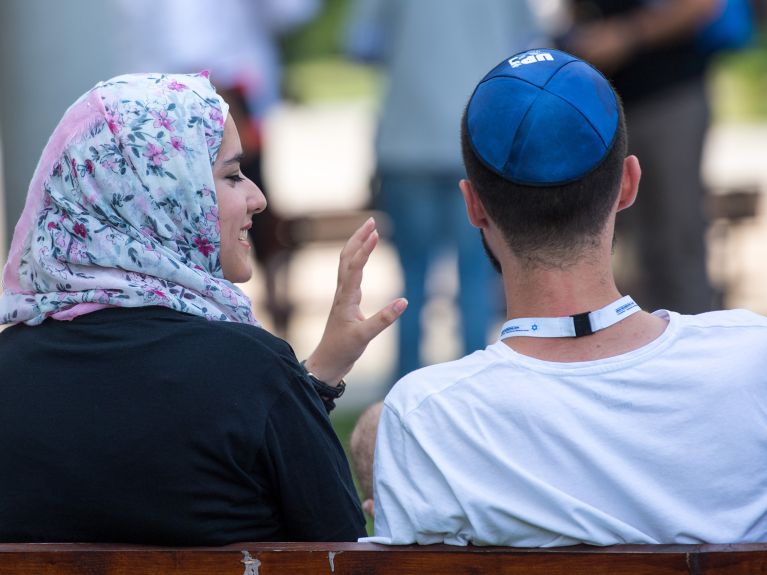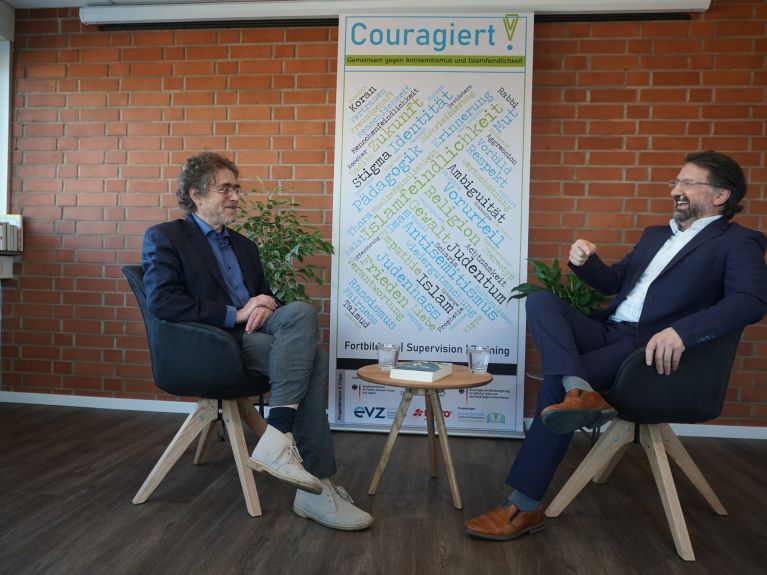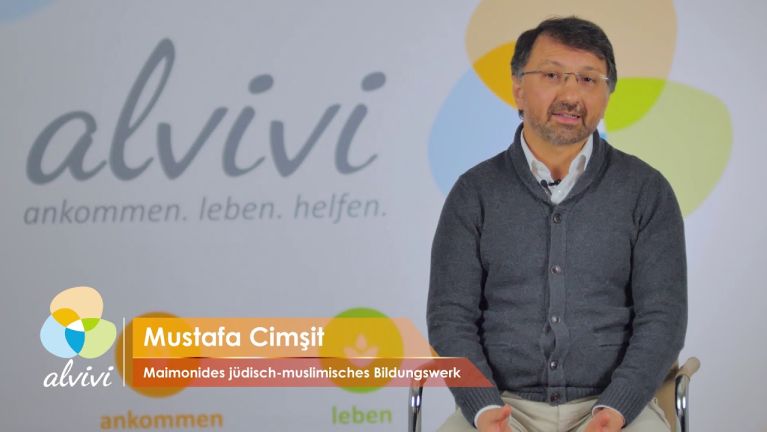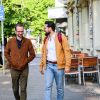Starting a conversation
Maimonides is a Jewish-Muslim educational institute. The founders talked to us about their cooperation.

Mustafa Cimşit: “When I first met Peter, he was the chairman of the Jewish communities in Rhineland-Palatinate. Later I asked him to help me set up the Shura Muslim state association. That is how we became friends. At some point we had the idea of institutionalising our exchange. This is why we established the Jüdisch-Muslimisches Bildungswerk Maimonides (the Maimonides Jewish-Muslim Educational Institute) in 2019 – named after the Jewish philosopher and doctor from Córdoba, a perfect example of Jewish-Muslim relations in history. One of our first projects is entitled ‘Couragiert – Gemeinsam gegen Antisemitismus und Islamfeindlichkeit’ (Courage – Together against anti-Semitism and Islamophobia). We want to train key representatives of Jewish and Muslim communities to become ‘Couragiert trainers’. One aspect of this is the culture of memory. This involves the dark chapters of history, but also raises questions such as: Where have Jews and Muslims worked together? And what impact did this have on European enlightenment?”

Peter Waldmann: “One day Mustafa had the idea of introducing me to Muslim communities. During the conversations I noticed that initial shyness quickly gave way to openness. I realised that we need to create communicative spaces in order to overcome prejudices. This is exactly what we are doing with the educational institute. Alongside ‘Couragiert’, we are developing another project: within the framework of ‘1,700 years of Jewish life in Germany’ we plan to tell untold stories. These 1,700 years are also characterised by the relationship between Jews in Germany and the Muslim world. This is evident for example in the synagogues of the nineteenth century, which were often built in the Moorish style. What is more, until 1933 more than one in five chairs in Oriental studies in Germany were occupied by Jews. We do not wish to pretend that the relationship has always been perfect. However, we do want to show that it is a special relationship that has changed frequently, and can also change again. The culture of memory plays a crucial role in this: How is a culture of memory possible in a multicultural society in 2021? We intend to develop concepts for this.”
Dieses YouTube-Video kann in einem neuen Tab abgespielt werden
YouTube öffnenThird party content
We use YouTube to embed content that may collect data about your activity. Please review the details and accept the service to see this content.
Open consent formYou would like to receive regular information about Germany? Subscribe here:



